Cost and Savings Analysis for Heat Pumps
Five Strategies: Maximize Your Heat Pump Efficiency

Are you seeking to enhance the effectiveness of your heat pump? You’re in the right place! In this article, we will outline five strategies to assist you in achieving peak performance and saving energy.
From understanding heat pump efficiency ratings to utilizing smart technology, we’ve got you covered. Get ready to increase your comfort and reduce your energy bills with these simple yet effective tips.
Let’s dive in and take your heat pump efficiency to the next level!
Key Takeaways
- Choosing a heat pump with a high SEER or HSPF rating ensures higher energy efficiency.
- Adjusting thermostat settings based on time of day and occupancy patterns optimizes efficiency.
- Regular maintenance and cleaning of the heat pump prevent issues and maintain efficiency.
- Enhancing insulation through upgrades and sealing air leaks reduces heat loss and workload on the heat pump.
Understanding Heat Pump Efficiency Ratings
As we delve into the topic of understanding heat pump efficiency ratings, it’s important to consider various factors that impact the overall performance of the system. Heat pump performance and energy efficiency go hand in hand when it comes to evaluating the effectiveness of a heat pump.
The efficiency rating of a heat pump is typically expressed as a Seasonal Energy Efficiency Ratio (SEER) or a Heating Seasonal Performance Factor (HSPF). SEER measures the cooling efficiency, while HSPF measures the heating efficiency of the system. The higher the SEER or HSPF rating, the more energy-efficient the heat pump is.
It’s crucial to choose a heat pump with a high efficiency rating to ensure optimal energy savings and comfort in both cooling and heating modes. By understanding these efficiency ratings, homeowners can make informed decisions when selecting a heat pump for their homes.
Optimizing Heat Pump Thermostat Settings
To maximize our heat pump efficiency, we should adjust the thermostat settings based on the time of day and our occupancy patterns. This is one of the key energy-saving strategies for optimizing the performance of our heat pump. By properly controlling the temperature, we can ensure that our heat pump operates efficiently and saves energy.
One important aspect of optimizing the thermostat settings is setting a temperature schedule that aligns with our daily routine. For example, we can program the thermostat to lower the temperature when we’re away from home or asleep, and raise it when we’re active and need more comfort. This way, we can avoid unnecessary heating or cooling when it isn’t needed, resulting in energy savings.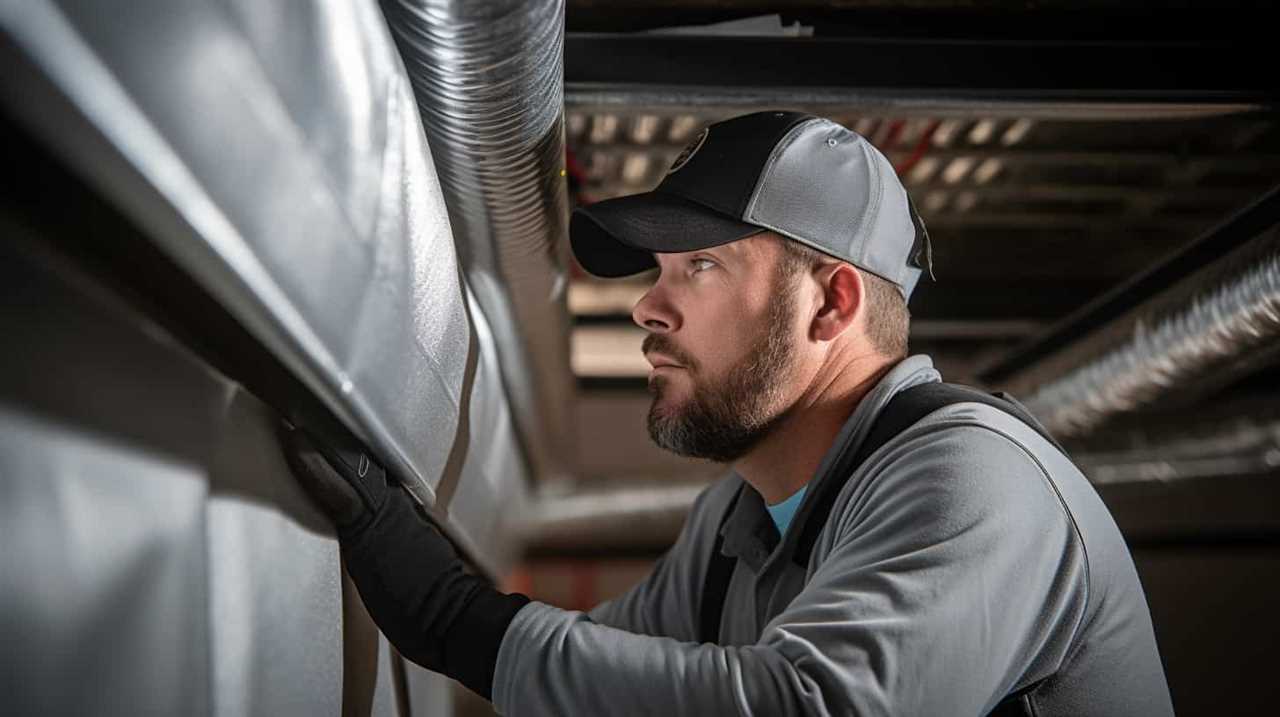
Another strategy is to make use of the thermostat’s smart features, such as geofencing and occupancy sensors. These features can automatically adjust the temperature based on our presence in the house, ensuring that we’re comfortable while avoiding energy waste.
Regular Maintenance and Cleaning Tips
We regularly perform maintenance and cleaning tasks to ensure optimal efficiency and longevity of our heat pump. Here are some key tips to keep your heat pump running smoothly:
- Troubleshooting common heat pump issues:
- Check the thermostat settings to ensure they’re correctly configured.
- Inspect the air filters regularly and clean or replace them as necessary to maintain proper airflow.
Proper airflow management:
- Keep the outdoor unit clear of debris, such as leaves or grass clippings, to allow for adequate airflow.
- Ensure that the indoor vents and registers aren’t blocked by furniture or other objects.
Regular maintenance and cleaning are essential to prevent common heat pump issues and ensure proper airflow. By following these tips, you can maximize the efficiency of your heat pump and prolong its lifespan.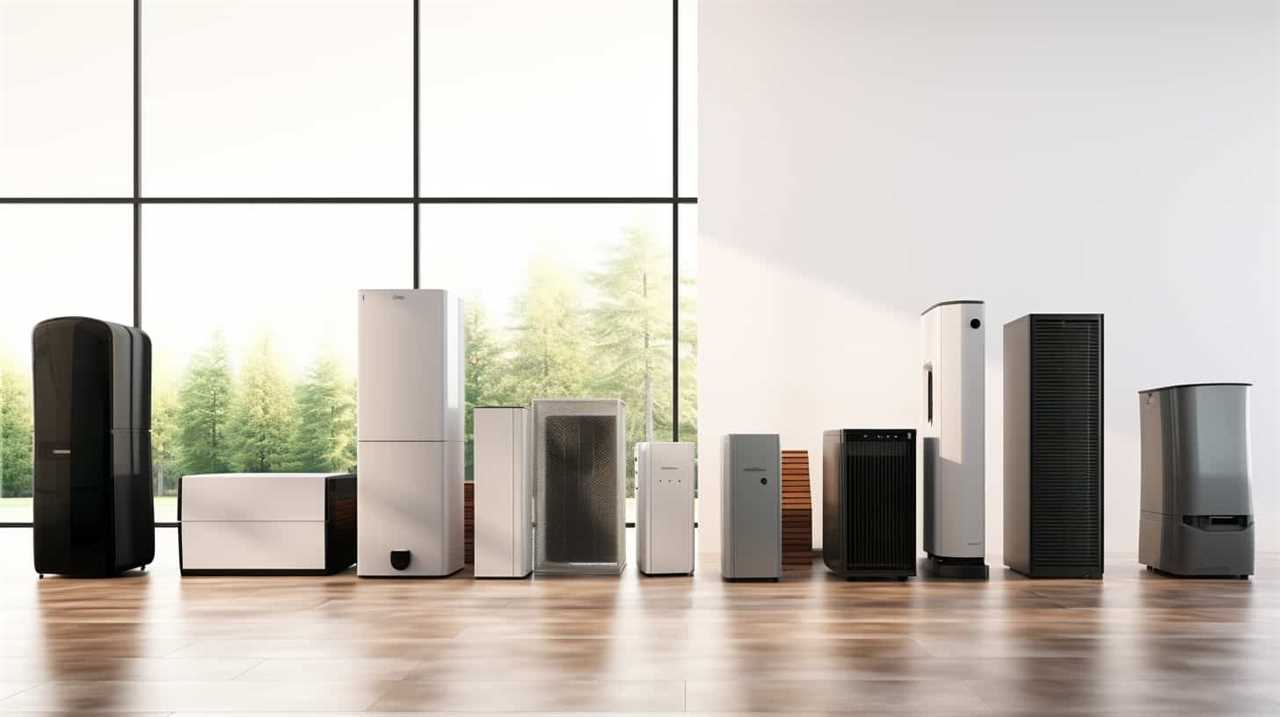
Enhancing Insulation for Heat Pump Efficiency
The insulation in our home plays a crucial role in maximizing the efficiency of our heat pump. One way to enhance insulation is by upgrading windows. Older windows tend to have poor insulation properties, allowing heat to escape during winter and enter during summer. By replacing them with energy-efficient windows, we can minimize heat transfer, reducing the workload on our heat pump.
Another important step is sealing air leaks. Small gaps and cracks around windows, doors, and other areas can let cold air in and warm air out, making our heat pump work harder. By properly sealing these leaks with caulk or weatherstripping, we can improve the insulation of our home and boost the efficiency of our heat pump.
Utilizing Smart Technology for Energy Savings
By utilizing smart technology, we can achieve energy savings with our heat pump. Smart technology offers a range of benefits for optimizing energy management solutions.
Here are two ways we can maximize our heat pump efficiency using smart technology:

Smart Thermostats: Smart thermostats allow us to control and monitor our heat pump remotely. With features like geofencing and learning algorithms, these thermostats can automatically adjust the temperature based on our preferences and occupancy patterns. This ensures that our heat pump operates efficiently and minimizes energy waste.
Home Energy Monitoring Systems: These systems provide real-time data on our energy consumption, allowing us to identify areas where we can make improvements. By analyzing this data, we can optimize our heat pump settings and detect any potential issues that may affect its efficiency.
Frequently Asked Questions
How Long Does It Typically Take for a Heat Pump to Reach Maximum Efficiency After Being Turned On?
It typically takes a heat pump some time to reach maximum efficiency after being turned on. However, by following some tips for improving heat pump efficiency, such as regular maintenance and proper insulation, we can minimize heat pump energy consumption.
Are There Any Government Incentives or Rebates Available for Upgrading to a More Efficient Heat Pump?
There are government incentives and rebates available for upgrading to a more efficient heat pump. These programs aim to promote energy efficiency and reduce carbon emissions. They can help offset the cost of purchasing and installing a new heat pump.
Can a Heat Pump Be Used in Colder Climates Where Temperatures Regularly Drop Below Freezing?
In colder climates where temperatures regularly drop below freezing, it’s important to consider heat pump performance in extreme cold. However, heat pumps can still provide energy savings in these conditions.
Are There Any Specific Brands or Models of Heat Pumps That Are Known for Being More Efficient Than Others?
Most efficient heat pump brands are influenced by factors affecting heat pump efficiency. We can discuss specific brands and models known for their efficiency.
What Is the Average Lifespan of a Heat Pump, and Does It Affect Its Efficiency Over Time?
The average lifespan of a heat pump and its impact on efficiency over time are important considerations. Factors such as regular maintenance, usage patterns, and quality of installation can all influence the longevity and performance of a heat pump.
What Are the Top Efficiency Tips for Maximizing Heat Pump Usage?
Looking to maximize heat pump usage? Here are the top heat pump efficiency tips: First, make sure your heat pump is the right size for your home. Secondly, clean or replace air filters regularly for optimal performance. Thirdly, maintain a consistent temperature to reduce unnecessary strain on the system. Finally, consider investing in a programmable thermostat for better control. Follow these tips to boost your heat pump’s efficiency.
Conclusion
In conclusion, by following these five strategies, you can maximize the efficiency of your heat pump and save on energy costs.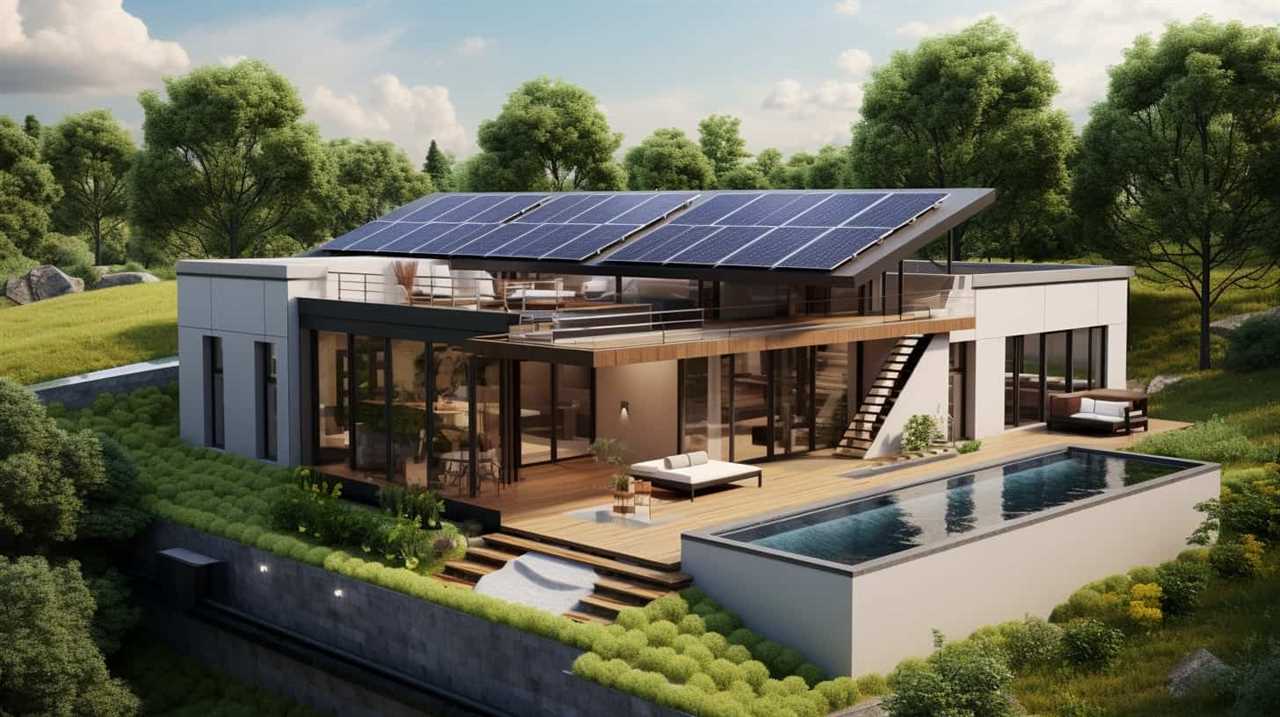
Understanding the efficiency ratings, optimizing thermostat settings, performing regular maintenance, enhancing insulation, and using smart technology are all key factors in achieving optimal heat pump performance.
By implementing these strategies, you can create a more comfortable and energy-efficient home.
So go ahead, take control of your heat pump and enjoy the benefits of a more efficient system.
Cost and Savings Analysis for Heat Pumps
Exploring Eco-Friendly Construction: The Role of Heat Pumps

At our publication, we strongly support eco-friendly construction and recognize the important role that heat pumps play in promoting sustainable building practices.
In this article, we will delve into the benefits of heat pumps, exploring their contribution to green construction and their ability to maximize energy efficiency.
Through case studies, we will showcase successful implementations of heat pumps in various eco-friendly projects.
Join us as we explore the fascinating world of heat pump technology for sustainable construction.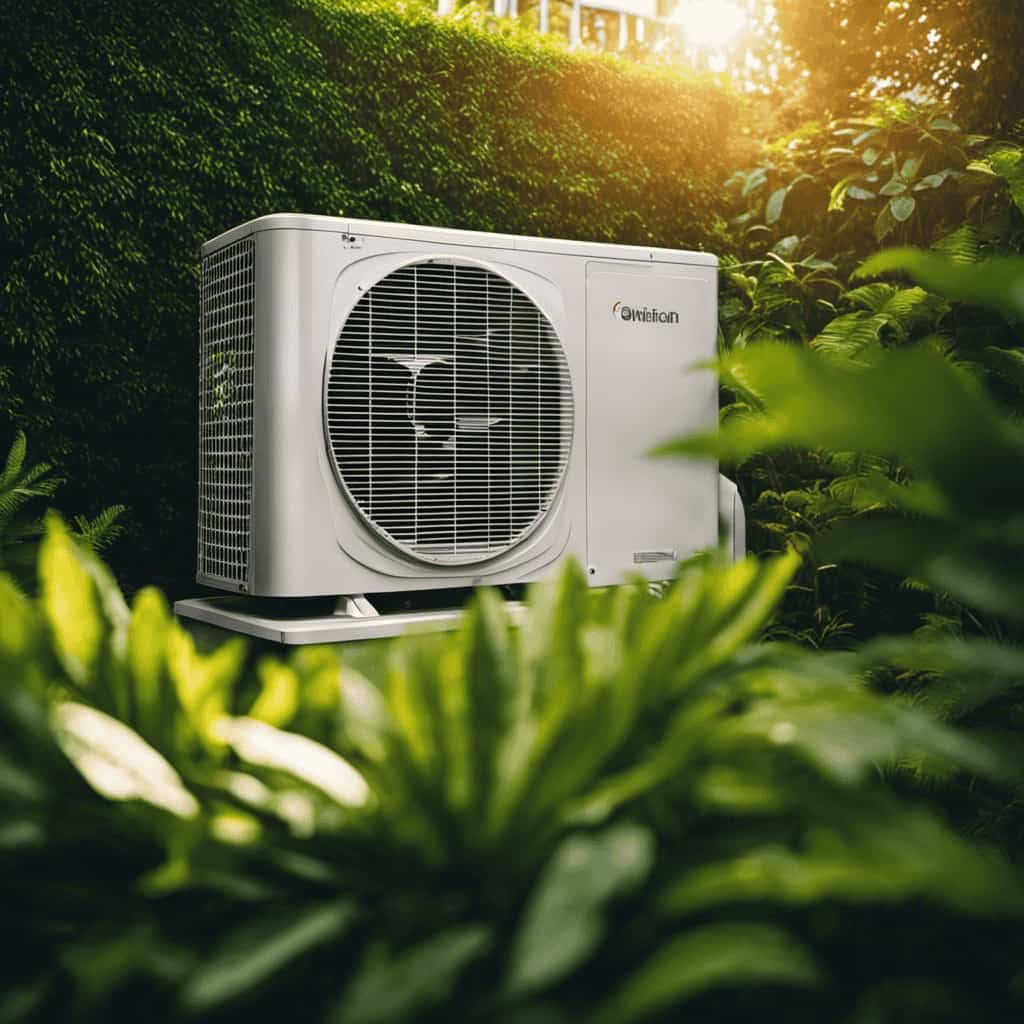
Key Takeaways
- Heat pumps are highly energy-efficient and can extract heat from the environment, reducing the need for traditional heating and cooling methods.
- Heat pumps contribute to green building practices by reducing greenhouse gas emissions, utilizing renewable energy sources, and reducing reliance on fossil fuels.
- Maximizing energy efficiency with heat pumps in construction requires proper installation, sizing, location, insulation, and regular maintenance.
- Heat pump technology can be explored for sustainable construction by focusing on factors such as proper sizing, quality installation, lifecycle cost analysis, and efficient implementation.
The Benefits of Heat Pumps in Eco-Friendly Construction
We believe that heat pumps play a crucial role in eco-friendly construction by reducing carbon emissions and increasing energy efficiency.
The advantages of heat pumps in eco-friendly construction are undeniable. Firstly, heat pumps are highly energy-efficient, as they can extract heat from the environment and transfer it indoors or vice versa. This reduces the need for traditional heating and cooling methods, resulting in significant energy savings.
Secondly, heat pumps have a minimal environmental impact compared to fossil fuel-based heating systems. They don’t burn any fuel and therefore produce no greenhouse gas emissions or air pollutants. This helps in reducing the carbon footprint of buildings and contributes to a cleaner and healthier environment.
How Heat Pumps Contribute to Green Building Practices
By utilizing heat pumps, we can actively contribute to green building practices by reducing energy consumption and promoting sustainability. Heat pumps have a significant environmental impact in construction due to their energy efficiency and use of renewable energy sources.
Here are three ways in which heat pumps contribute to green building practices:
Energy Efficiency: Heat pumps transfer heat from a lower temperature source to a higher temperature space, requiring less energy compared to traditional heating and cooling systems. This reduces greenhouse gas emissions and minimizes the overall environmental impact.
Renewable Energy Sources: Heat pumps can utilize renewable energy sources such as geothermal, air, or water to operate. By harnessing these sustainable resources, heat pumps reduce the reliance on fossil fuels and contribute to a cleaner environment.
Cost Effectiveness: Although heat pumps may have a higher upfront cost, they offer long-term savings through reduced energy consumption and lower utility bills. This cost-effectiveness makes them an attractive option for sustainable building practices.

Maximizing Energy Efficiency With Heat Pumps in Construction
To achieve maximum energy efficiency in construction, we can optimize the performance of heat pumps through proper installation and regular maintenance.
Heat pumps are a key component of renewable heating systems, providing an efficient and sustainable way to heat buildings. By harnessing the natural heat from the air, ground, or water, heat pumps can generate up to four units of heat for every unit of electricity consumed. This results in significant energy savings compared to traditional heating systems.
To maximize energy efficiency, it’s crucial to install heat pumps correctly, ensuring proper sizing, location, and insulation. Regular maintenance is also essential to ensure optimal performance and prevent energy losses. This includes cleaning filters, checking refrigerant levels, and inspecting components for wear and tear.
Exploring Heat Pump Technology for Sustainable Construction
In our exploration of heat pump technology for sustainable construction, we can utilize the efficiency and environmental benefits of this technology through proper implementation and ongoing maintenance. To ensure successful heat pump installation and operation, it’s important to consider the following:
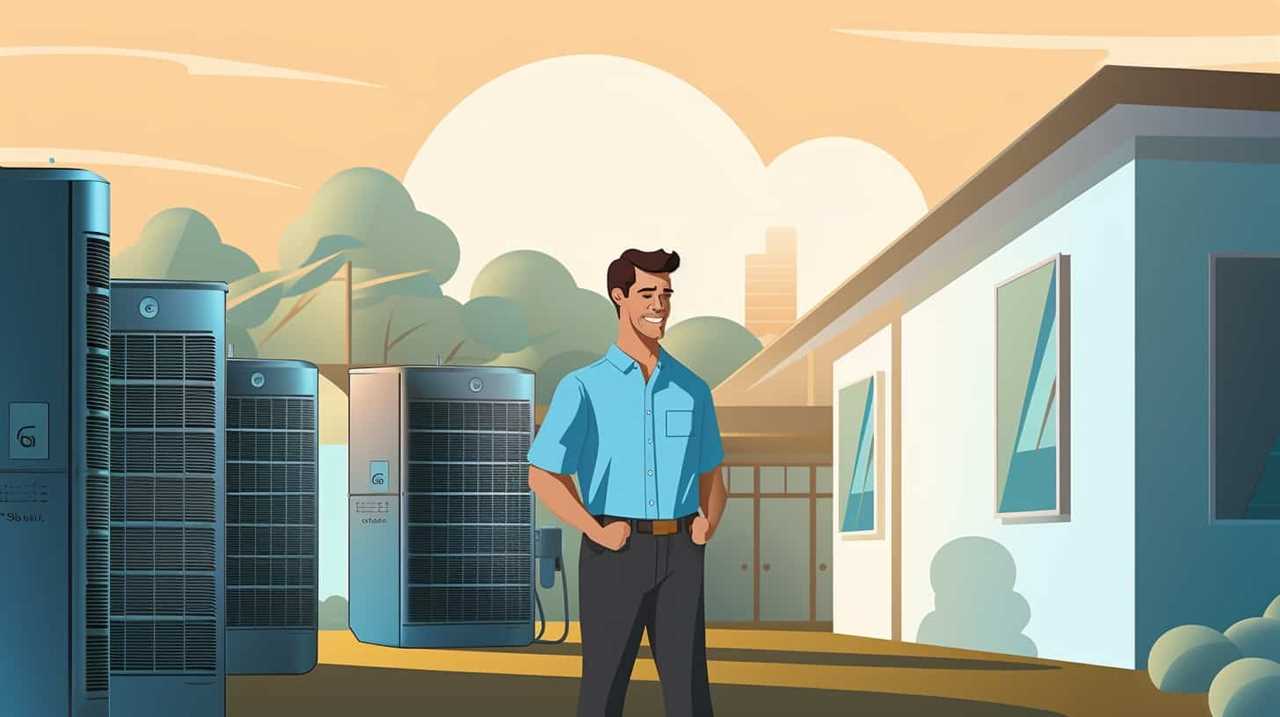
Proper sizing: A heat pump should be appropriately sized for the building’s heating and cooling requirements to maximize efficiency and minimize energy waste.
Quality installation: Hiring trained professionals to install the heat pump is crucial for optimal performance and longevity. Improper installation can lead to reduced efficiency and increased operating costs.
Lifecycle cost analysis: While heat pump cost may initially seem higher than traditional HVAC systems, conducting a lifecycle cost analysis can reveal long-term savings in energy consumption and maintenance expenses.
By focusing on these factors, we can fully harness the potential of heat pump technology in sustainable construction.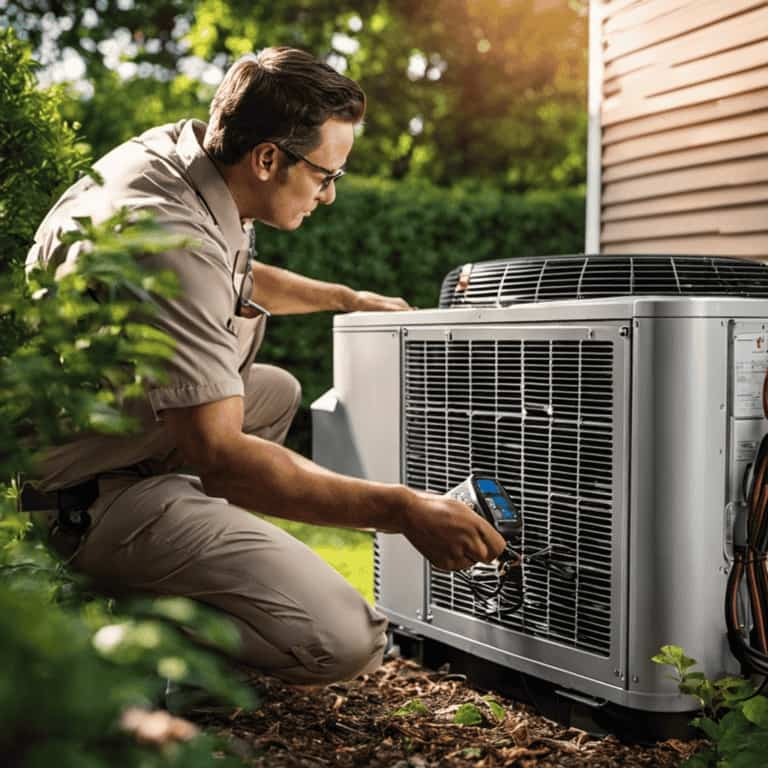
Now, let’s explore some case studies that highlight successful implementation of heat pumps in eco-friendly projects.
Case Studies: Successful Implementation of Heat Pumps in Eco-Friendly Projects
We have examined several quantifiable case studies that demonstrate the successful implementation of heat pumps in various eco-friendly construction projects. These case studies provide valuable insights into how heat pumps can contribute to the sustainability and energy efficiency of buildings.
One such case study is the Bullitt Center in Seattle, Washington. This six-story office building achieved net-zero energy consumption by utilizing a ground-source heat pump system to provide heating and cooling. The heat pumps draw energy from the earth’s constant temperature, reducing the building’s reliance on traditional HVAC systems.
Another successful example is the Dockside Green development in Victoria, Canada. This mixed-use community incorporates heat pumps in its building designs, resulting in reduced energy consumption and lower greenhouse gas emissions.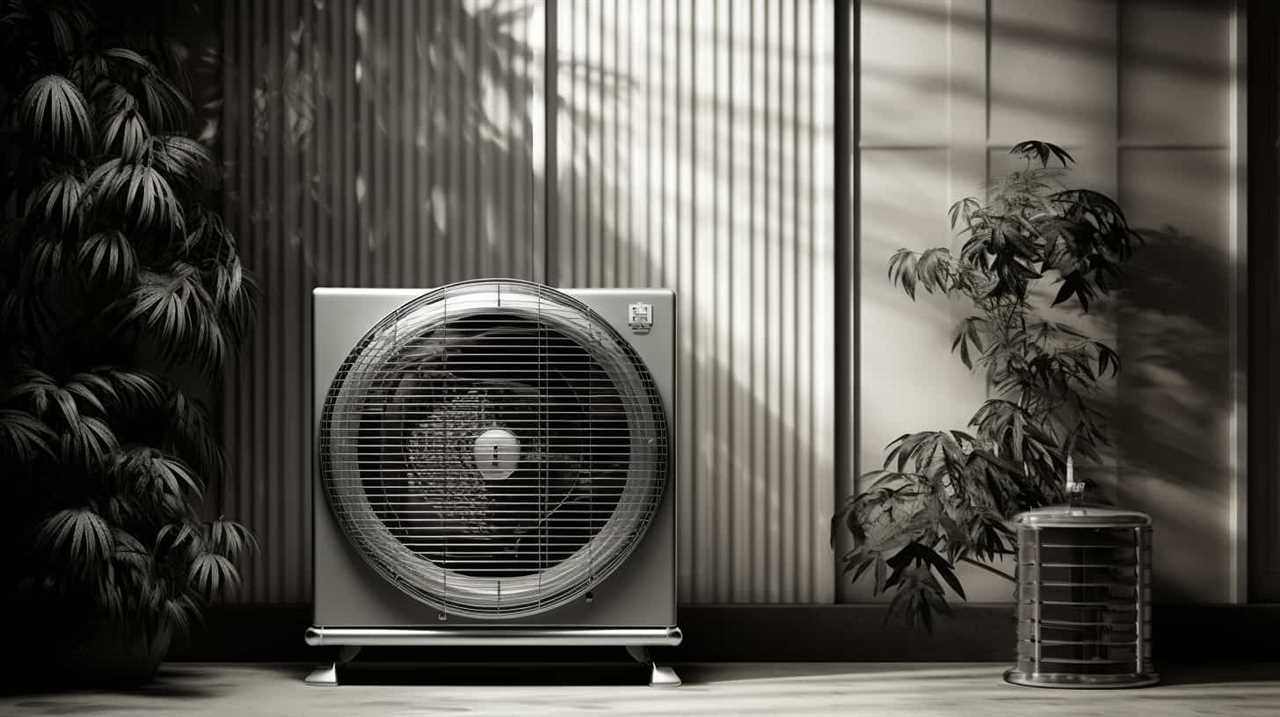
These case studies highlight the potential of heat pumps to play a crucial role in eco-friendly projects, making them a viable option for sustainable construction.
Frequently Asked Questions
What Are the Different Types of Heat Pumps Available for Eco-Friendly Construction?
There are various types of heat pumps available for eco-friendly construction. When considering heat pump efficiency, it’s important to explore the advantages of geothermal heat pumps, which harness renewable energy from the ground.
Are Heat Pumps Suitable for All Types of Buildings and Climates?
Heat pumps are not suitable for all types of buildings and climates. Factors such as extreme climates and building type need to be considered when choosing the appropriate heat pump system.
How Long Do Heat Pumps Typically Last in Eco-Friendly Construction Projects?
In eco-friendly construction projects, heat pumps typically last for an average of 15-20 years. Regular heat pump maintenance is crucial for maximizing their lifespan and reaping the benefits they offer in terms of energy efficiency and reduced environmental impact.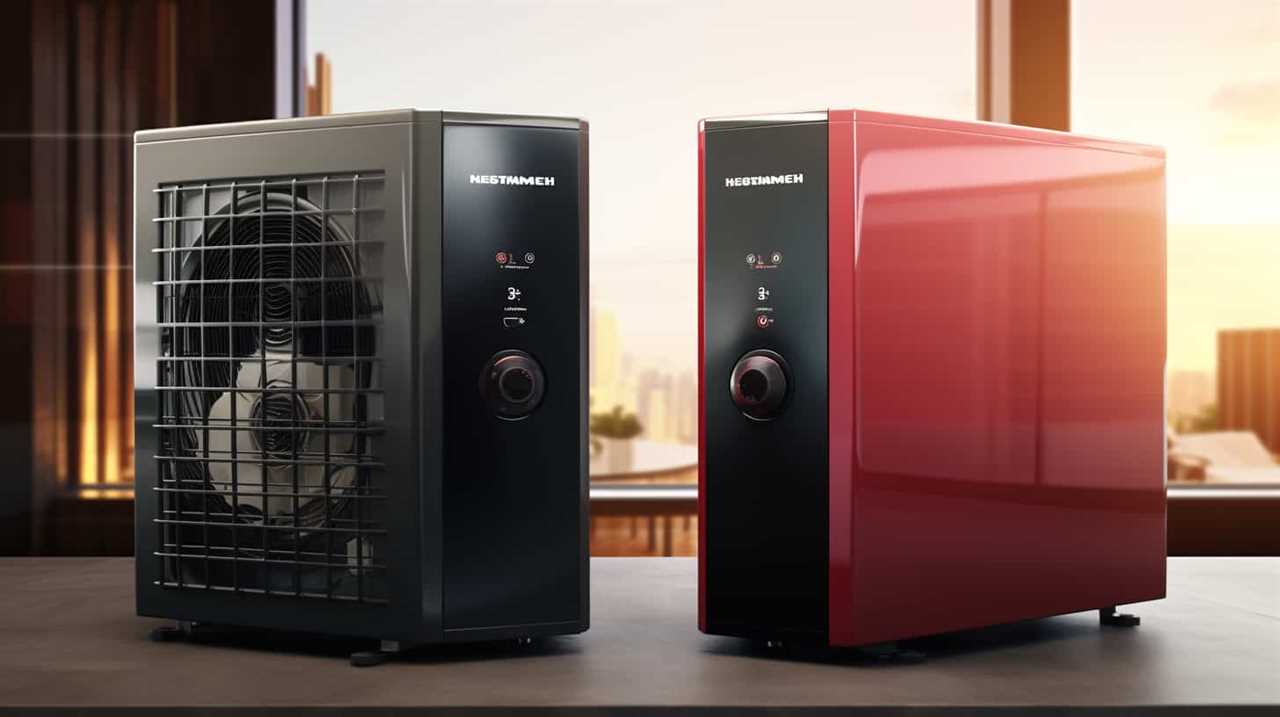
What Is the Average Cost of Installing a Heat Pump in an Eco-Friendly Construction Project?
The average cost of installing a heat pump in an eco-friendly construction project varies depending on factors such as size, type, and efficiency. A cost comparison analysis can help determine the best option for maximizing energy efficiency while minimizing expenses.
Are There Any Government Incentives or Tax Credits Available for Using Heat Pumps in Eco-Friendly Construction?
Oh, the joys of government incentives and tax credits! It turns out that there are indeed some sweet perks available for using heat pumps in eco-friendly construction. So, let’s dive into the details, shall we?
How Can Heat Pumps Improve the Efficiency of Sustainable Structures?
Heat pump efficiency in sustainable structures is a game-changer. By harnessing renewable energy sources from the environment, heat pumps can greatly reduce the reliance on traditional heating and cooling systems. This leads to significant energy savings and a reduced carbon footprint. With advanced technology and proper installation, heat pumps can provide consistent and efficient heating and cooling while maintaining environmental sustainability.
Why Are Heat Pumps Considered Eco-Friendly for Construction?
Heat pumps are widely regarded as eco-friendly options for construction projects. They harness renewable energy sources to provide heating and cooling, reducing reliance on fossil fuels. With their advanced technology and efficient operation, expert heat pump installation services ensure optimal performance while minimizing environmental impact. This makes heat pumps a sustainable choice that promotes energy efficiency and reduces carbon emissions in buildings.
How Do Heat Pumps Improve Energy Efficiency in Eco-Friendly Construction?
Heat pumps offer innovative heat pump benefits for energy efficiency in eco-friendly construction. By utilizing the concept of transferring heat rather than converting it, heat pumps can effectively extract heat from the environment, even from colder air or water sources. This process requires less energy compared to traditional heating systems, significantly reducing energy consumption and carbon footprint. Additionally, heat pumps can also provide cooling capabilities, making them a versatile and eco-friendly solution for maintaining comfortable indoor temperatures all year round.
Conclusion
In conclusion, heat pumps are a vital component in eco-friendly construction, offering numerous benefits. Their contribution to green building practices is remarkable, maximizing energy efficiency and promoting sustainable construction.
Through exploring heat pump technology, we’ve witnessed successful implementation in various eco-friendly projects. They’re the heart of a greener future, providing warmth and comfort while minimizing environmental impact.
Heat pumps are the cornerstone of eco-friendly construction, paving the way for a brighter and more sustainable tomorrow.
Cost and Savings Analysis for Heat Pumps
Unlocking the Mystery: Heat Pump Energy Efficiency Ratings

Are you wondering how to enhance the energy efficiency of your heat pump? Look no further, as this article will decode the mystery surrounding heat pump energy efficiency ratings.
By understanding the importance of these ratings and the factors that affect efficiency, you’ll be able to make informed decisions to save energy and money.
Get ready to dive into the world of heat pump efficiency and discover the secrets to maximizing your comfort while minimizing your carbon footprint.
Key Takeaways
- Energy efficiency ratings determine the effectiveness of heat pumps.
- Higher ratings indicate more energy efficiency and cost savings.
- Understanding SEER and HSPF ratings is crucial for evaluating heat pump efficiency.
- Factors such as size, insulation, climate, maintenance, and installation affect heat pump efficiency.
The Importance of Energy Efficiency Ratings
Why are energy efficiency ratings so important for us when it comes to heat pumps?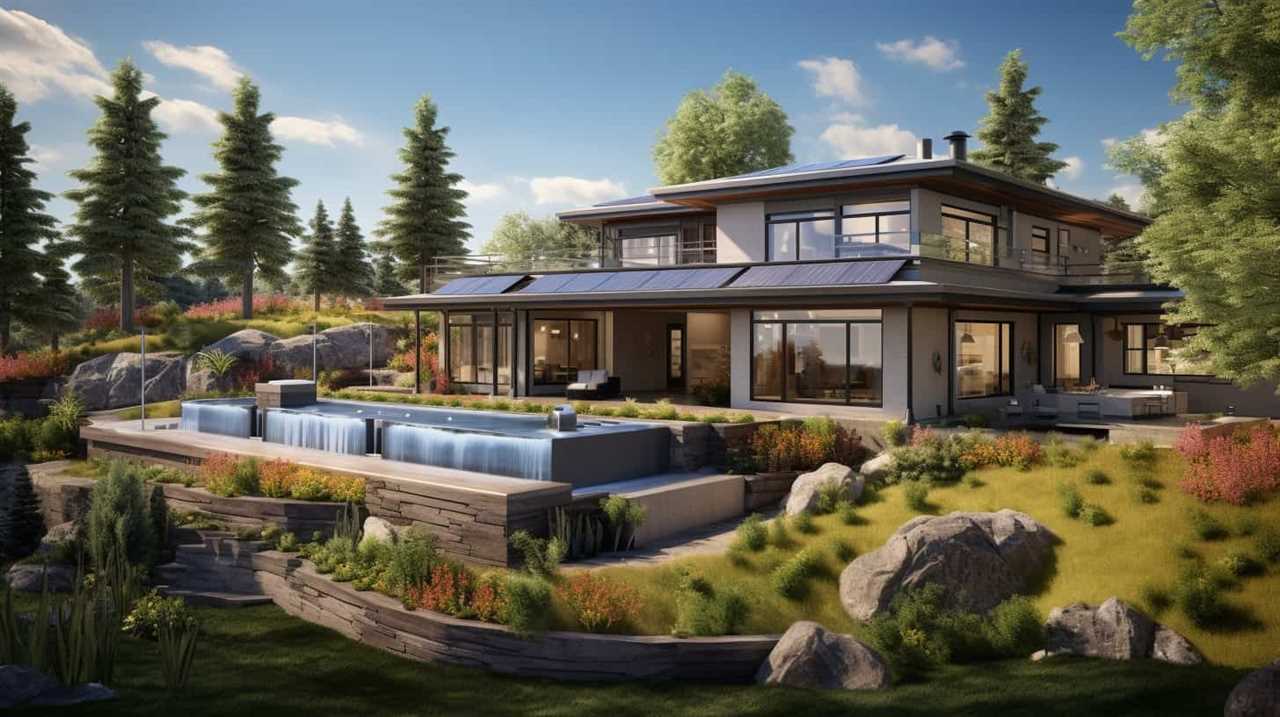
Energy efficiency ratings play a crucial role in determining the effectiveness of heat pumps. By using advanced energy saving techniques, heat pumps can reduce energy consumption and lower utility bills. These ratings allow us to compare the performance of different models and make informed decisions based on their efficiency levels.
The higher the rating, the more energy efficient the heat pump is, resulting in significant cost savings over time. Additionally, energy efficiency ratings have a positive environmental impact. By reducing energy consumption, heat pumps help to decrease greenhouse gas emissions and combat climate change.
It’s important for us to prioritize energy efficiency when choosing heat pumps to minimize our carbon footprint and contribute to a sustainable future.
Understanding SEER and HSPF Ratings
When it comes to heat pump energy efficiency, understanding SEER (Seasonal Energy Efficiency Ratio) and HSPF (Heating Seasonal Performance Factor) ratings is essential for making informed decisions.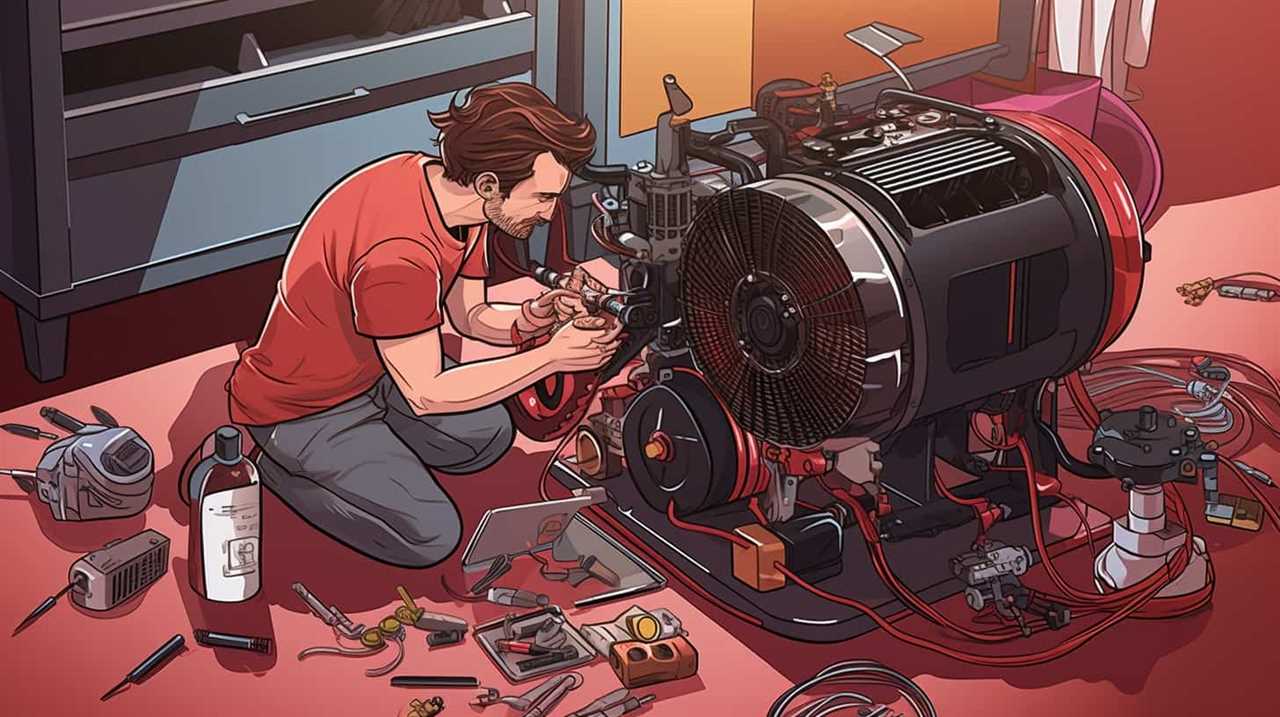
SEER measures the cooling efficiency of a heat pump, while HSPF measures its heating efficiency.
Both ratings are important indicators of a heat pump’s overall energy consumption and performance.
The SEER rating reflects the amount of cooling output a heat pump provides for each unit of energy input, while the HSPF rating measures the heating output per unit of energy input.
By considering these ratings, consumers can determine the energy efficiency of different heat pump models and choose the one that best suits their needs.
Now that we understand SEER and HSPF ratings, let’s explore the various factors that can affect heat pump efficiency.
Factors Affecting Heat Pump Efficiency
As consumers, we can improve the energy efficiency of our heat pumps by considering the factors that affect their performance and optimizing their operation. By understanding these factors, we can make informed choices that not only reduce our environmental impact but also save on energy costs. Some key factors that affect heat pump efficiency include the size and type of heat pump, insulation levels in our homes, and the local climate. Additionally, regular maintenance and proper installation play a crucial role in maximizing efficiency. To illustrate these factors, here is a table highlighting their impact on heat pump performance:
| Factor | Impact on Efficiency |
|---|---|
| Heat pump size | Proper sizing is essential for optimal efficiency. A unit that is too large or too small can result in energy wastage. |
| Insulation levels | Well-insulated homes retain heat better, reducing the workload on the heat pump and improving efficiency. |
| Local climate | Extreme temperatures can affect the efficiency of heat pumps. Units may struggle to maintain desired temperatures in very cold or hot climates. |
| Maintenance | Regular maintenance ensures that the heat pump operates at peak efficiency. Dirty filters, worn-out components, and refrigerant leaks can all impact performance. |
| Installation quality | Proper installation by a qualified professional ensures that the heat pump operates efficiently and minimizes energy losses. |
Understanding these factors and taking appropriate cost-saving measures can help us optimize the efficiency of our heat pumps and reduce our environmental impact. Now let’s explore how we can compare energy efficiency labels to make informed decisions about heat pump purchases.
Comparing Energy Efficiency Labels
To make informed decisions about heat pump purchases, we can compare energy efficiency labels and consider their ratings.
Energy efficiency labels provide valuable information about how efficiently a heat pump can convert electricity into heat or cool air. The labels typically include the energy savings potential of the heat pump, represented by a rating system such as SEER (Seasonal Energy Efficiency Ratio) or HSPF (Heating Seasonal Performance Factor).
These ratings indicate the energy efficiency of the heat pump under specific conditions. By comparing the energy efficiency labels of different heat pumps, we can determine which models offer the highest energy savings potential.
This information allows us to select a heat pump that not only meets our heating and cooling needs but also helps us save on energy costs in the long run.
Tips for Improving Heat Pump Energy Efficiency
One simple way we can improve heat pump energy efficiency is by regularly cleaning or replacing the air filters. Heat pump maintenance plays a crucial role in maximizing energy savings and ensuring optimal performance. Dirty or clogged filters restrict airflow, making the heat pump work harder to maintain the desired temperature.

By cleaning or replacing the air filters every one to three months, we can enhance the heat pump’s efficiency and reduce energy consumption.
Another energy-saving tip is to schedule regular professional maintenance for the heat pump. This includes checking and cleaning the coils, inspecting the refrigerant levels, and ensuring proper airflow.
Additionally, sealing any air leaks around windows, doors, and ductwork can prevent heat loss or gain, further improving the overall energy efficiency of the heat pump system.
Frequently Asked Questions
How Much Does a Heat Pump Cost to Install?
When it comes to heat pump installation expenses, there are various factors that can affect the overall cost. These include the size of the heat pump, the complexity of the installation, and any additional equipment or materials needed.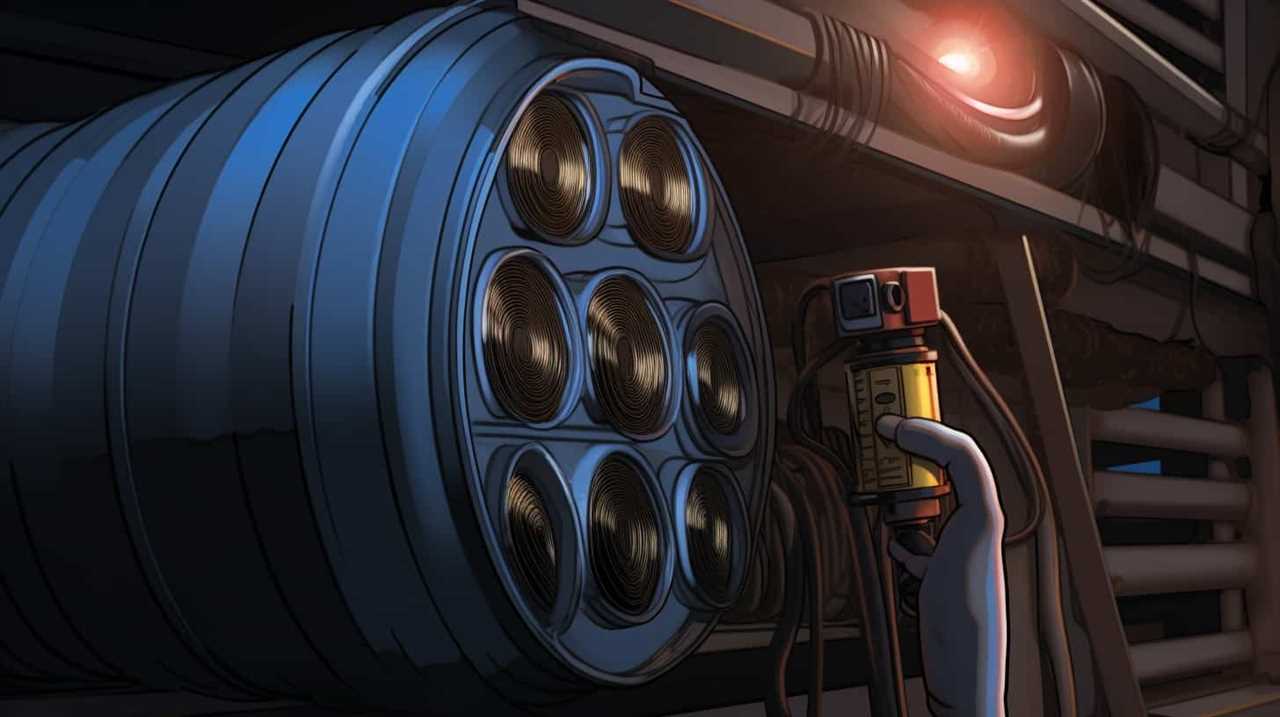
What Is the Average Lifespan of a Heat Pump?
The average lifespan of a heat pump depends on various factors such as usage, maintenance requirements, and model quality. Regular maintenance can extend its lifespan, but on average, a heat pump can last around 15-20 years.
Can a Heat Pump Be Used as a Primary Heating Source in Cold Climates?
Yes, a heat pump can be used as a primary heating source in cold climates. Its efficiency and suitability in cold climates make it an effective option for maintaining warmth and comfort.
Are There Any Government Incentives or Rebates Available for Purchasing a Heat Pump?
Yes, there are government incentives and heat pump rebates available for purchasing a heat pump. These programs aim to encourage energy efficiency and help offset the cost of installing a heat pump.
Can a Heat Pump Be Used to Cool a Home During the Summer Months?
Yes, a heat pump can be used to cool a home during the summer months. It offers many advantages, such as energy efficiency and cost savings, making it a popular choice for cooling systems.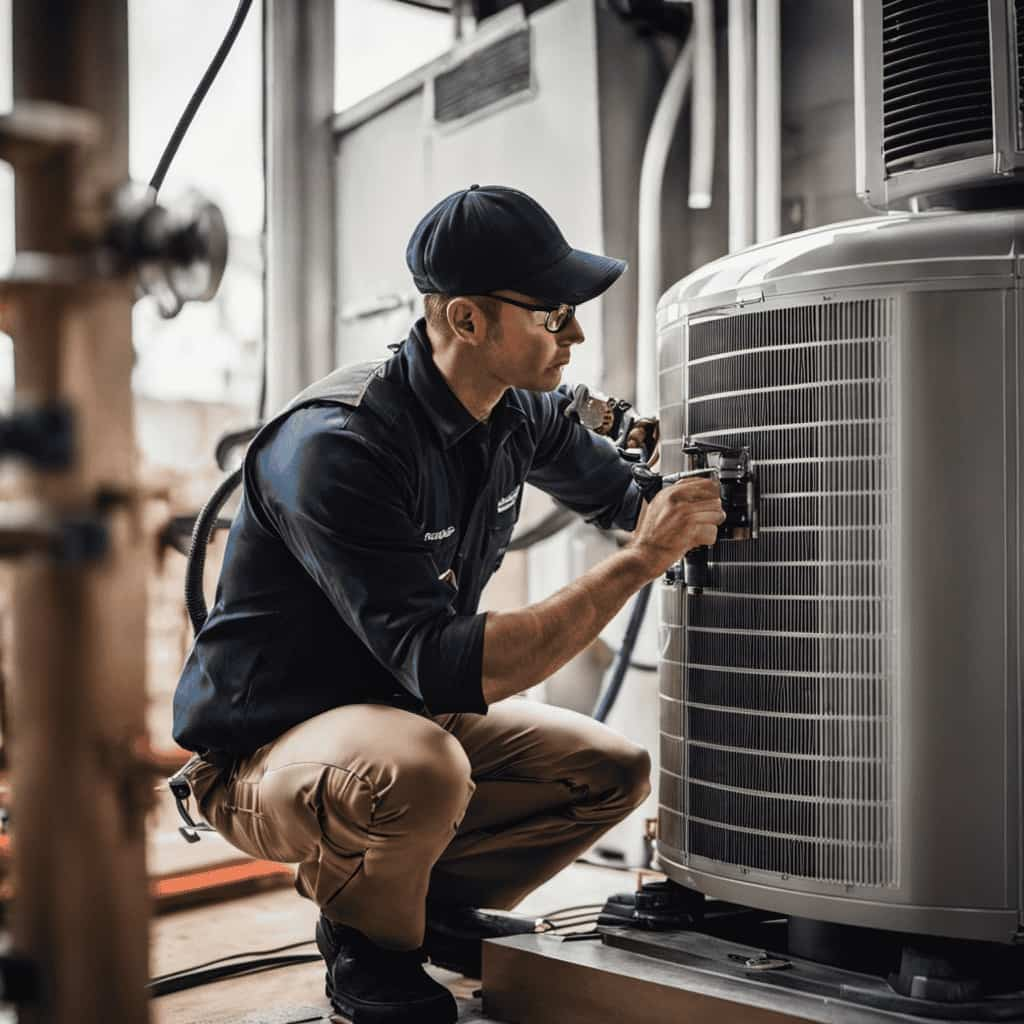
Why are Energy Efficiency Ratings Important for Heat Pumps?
Energy efficiency ratings of heat pumps are crucial. Decoding energy efficiency ratings of heat pumps allows consumers to understand the units’ effectiveness in converting energy into heat or cold. Higher ratings mean more efficiency, resulting in lower energy consumption and reduced utility bills. With the rising concern for climate change and energy conservation, being aware of these ratings helps individuals make informed decisions and contribute to a sustainable future.
Conclusion
In conclusion, understanding heat pump energy efficiency ratings is crucial for maximizing energy savings and reducing environmental impact.
By comparing SEER and HSPF ratings, homeowners can make informed decisions about the efficiency of different heat pump models.
Considering factors that affect heat pump efficiency, such as climate, insulation, and sizing, will help homeowners optimize their energy savings.
Improving energy efficiency through tips and techniques, such as regular maintenance, thermostat programming, and proper insulation, can further enhance the performance of heat pumps.

Embracing these strategies will lead to substantial cost savings and a greener future for all.
Cost and Savings Analysis for Heat Pumps
Comparing Energy Consumption: Heat Pumps Vs Traditional Systems

We have all felt the frustration of receiving high energy bills and constantly struggling to maintain a comfortable temperature in our homes. However, what if there was a more efficient and affordable solution for heating our homes?
In this article, we will compare the energy consumption of heat pumps versus traditional heating systems. By analyzing data and evaluating the factors that affect energy consumption, we aim to provide you with the information you need to make an informed decision about which system is right for you.
Key Takeaways
- Heat pumps offer up to 300% more energy efficiency compared to traditional systems.
- Heat pumps use electricity instead of burning fossil fuels, reducing carbon emissions and promoting environmental sustainability.
- Transitioning to heat pumps can significantly reduce electricity usage and lower utility bills over time.
- Heat pumps are a cost-effective choice for heating systems, providing long-term cost savings and a positive environmental impact.
Energy Efficiency of Heat Pumps
We believe heat pumps offer higher energy efficiency compared to traditional systems. Heat pump technology allows for the transfer of heat from one place to another, rather than generating heat through combustion or resistance heating. This process significantly reduces energy consumption and lowers greenhouse gas emissions, resulting in a positive environmental impact.
According to studies, heat pumps can provide up to 300% more energy efficiency compared to traditional heating and cooling systems. This means that for every unit of electricity consumed, a heat pump can produce three units of heating or cooling energy.
Electricity Usage of Traditional Heating Systems
In terms of electricity usage, traditional heating systems rely on direct consumption and do not offer the same energy efficiency as heat pumps. Traditional heating systems, such as furnaces or electric resistance heaters, consume a significant amount of electricity to generate heat. This high electricity usage results in higher energy consumption and ultimately, higher utility bills.
To illustrate the electricity usage of traditional heating systems, let’s compare it to the energy consumption of heat pumps. The table below shows the average electricity usage for different types of traditional heating systems:
| Heating System | Electricity Usage (kWh) |
|---|---|
| Furnace | 600-900 |
| Electric Resistance | 1000-2000 |
| Baseboard Heater | 600-1200 |
| Radiator | 500-800 |
| Electric Boiler | 1000-3000 |
As you can see, traditional heating systems consume a substantial amount of electricity compared to heat pumps. This inefficiency not only has financial implications but also contributes to higher carbon emissions. Therefore, transitioning to more energy-efficient options like heat pumps can significantly reduce electricity usage and promote sustainability.
Comparative Analysis of Heat Pump and Traditional System Electricity Consumption
When comparing the electricity consumption of heat pumps and traditional heating systems, it’s important to analyze their respective energy efficiency and cost-effectiveness.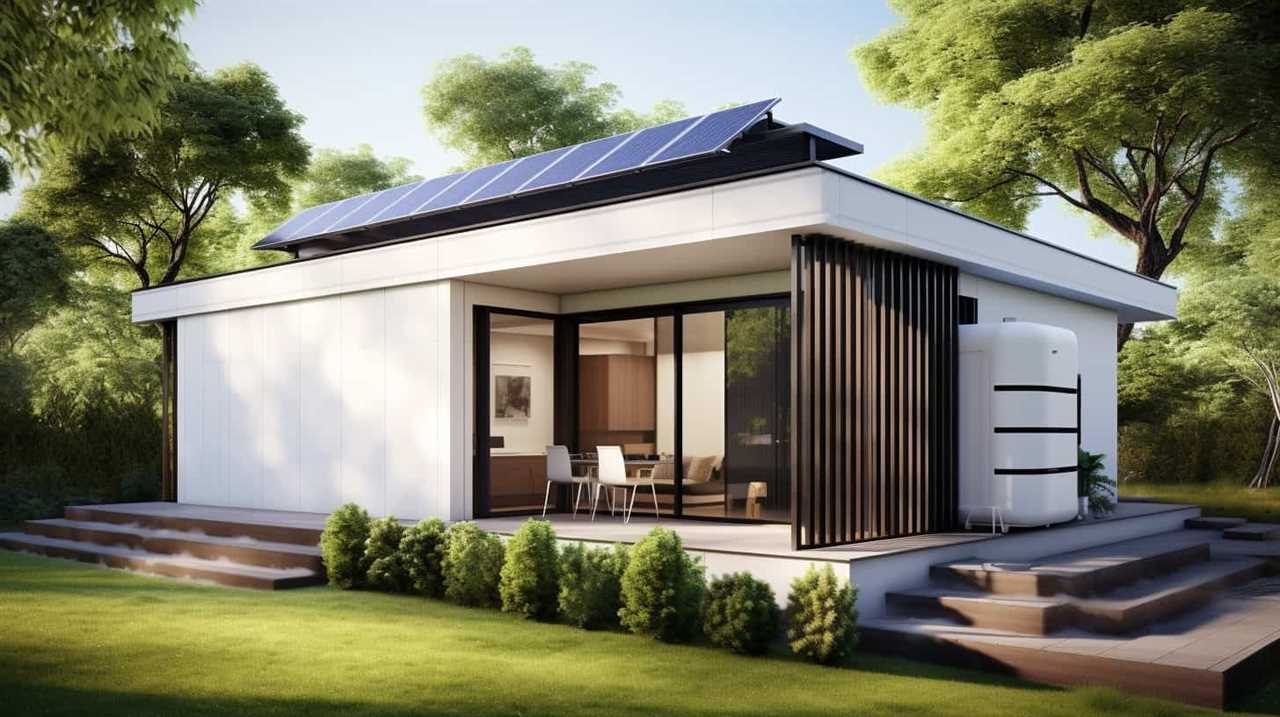
Heat pump technology, which utilizes the principles of thermodynamics to transfer heat from one place to another, has proven to be highly efficient in converting electrical energy into heat. This efficiency results in lower electricity consumption compared to traditional heating systems.
Additionally, heat pumps have a lower carbon footprint as they use electricity instead of burning fossil fuels, reducing greenhouse gas emissions.
The benefits of heat pump technology include:
Significant energy savings: Heat pumps can provide the same amount of heat as traditional systems while consuming less electricity.

Cost-effectiveness: Lower electricity consumption translates to reduced energy bills, saving homeowners money in the long run.
Environmental friendliness: Heat pumps contribute to a greener future by reducing carbon emissions and dependence on fossil fuels.
Versatility: Heat pumps can also be used for cooling purposes, making them a versatile heating and cooling solution.
Understanding the comparative electricity consumption of heat pumps and traditional systems is crucial in making informed decisions about energy usage. Now, let’s delve into the factors that affect energy consumption in both types of heating systems.
Factors Affecting Energy Consumption in Heat Pumps and Traditional Systems
Factors that impact energy consumption in heat pumps and traditional systems include:
- Insulation: Proper insulation reduces heat loss and improves energy efficiency in both systems.
- Climate conditions: Extreme temperatures may require more energy to maintain comfortable indoor temperatures.
- Equipment efficiency: Newer models with higher SEER ratings consume less energy.
- User behavior: Adjusting thermostat settings, utilizing zoning systems, and regular maintenance can affect energy consumption.
Considering these factors is essential when evaluating the cost-effectiveness of heat pumps vs traditional heating systems, as they can impact cost savings and environmental impact.
Now, let’s delve into evaluating the cost-effectiveness of heat pumps vs traditional heating systems.
Evaluating the Cost-effectiveness of Heat Pumps Vs Traditional Heating Systems
To determine the cost-effectiveness of heat pumps compared to traditional heating systems, we must consider various factors such as energy savings, installation costs, and maintenance expenses.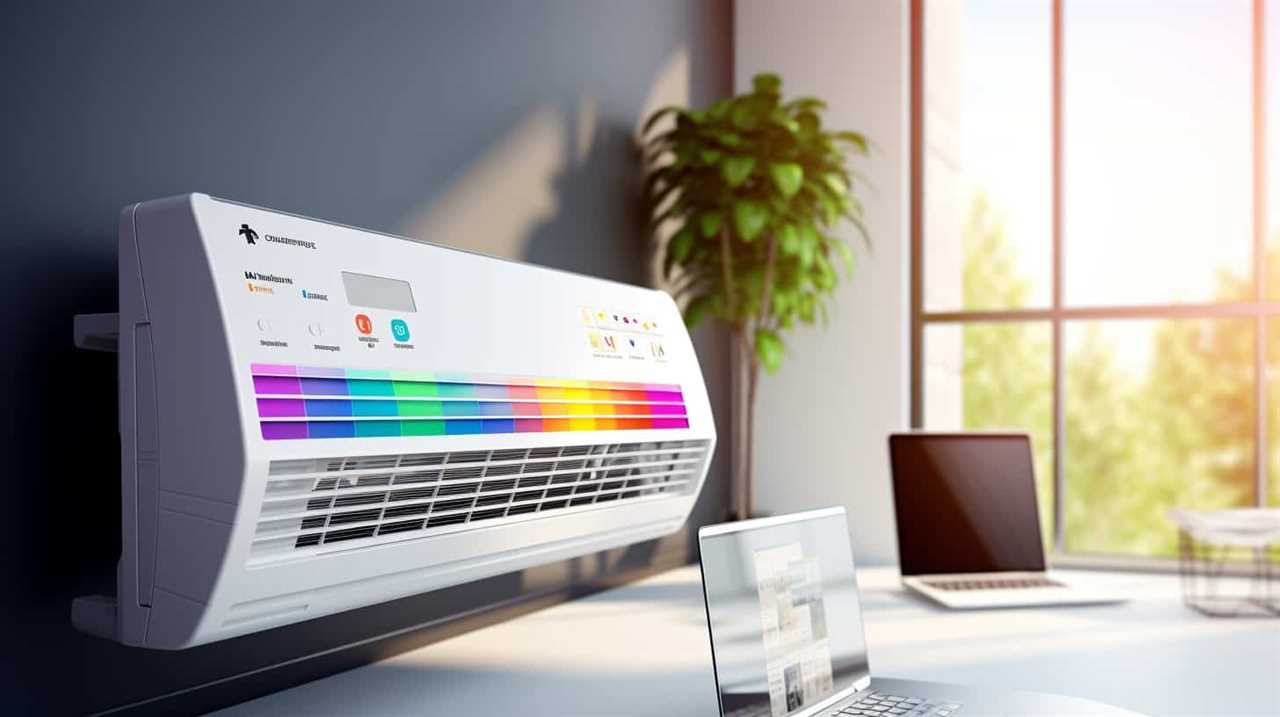
When evaluating the cost-effectiveness of heat pumps, here are four key points to consider:
Cost savings: Heat pumps can provide significant cost savings over time due to their high energy efficiency. They can reduce energy consumption by up to 50% compared to traditional heating systems, resulting in lower utility bills.
Installation costs: While heat pumps may have higher upfront installation costs compared to traditional systems, the long-term energy savings can outweigh the initial investment, making them more cost-effective in the long run.
Maintenance expenses: Heat pumps generally require less maintenance compared to traditional systems, leading to potential cost savings in terms of maintenance and repair expenses.
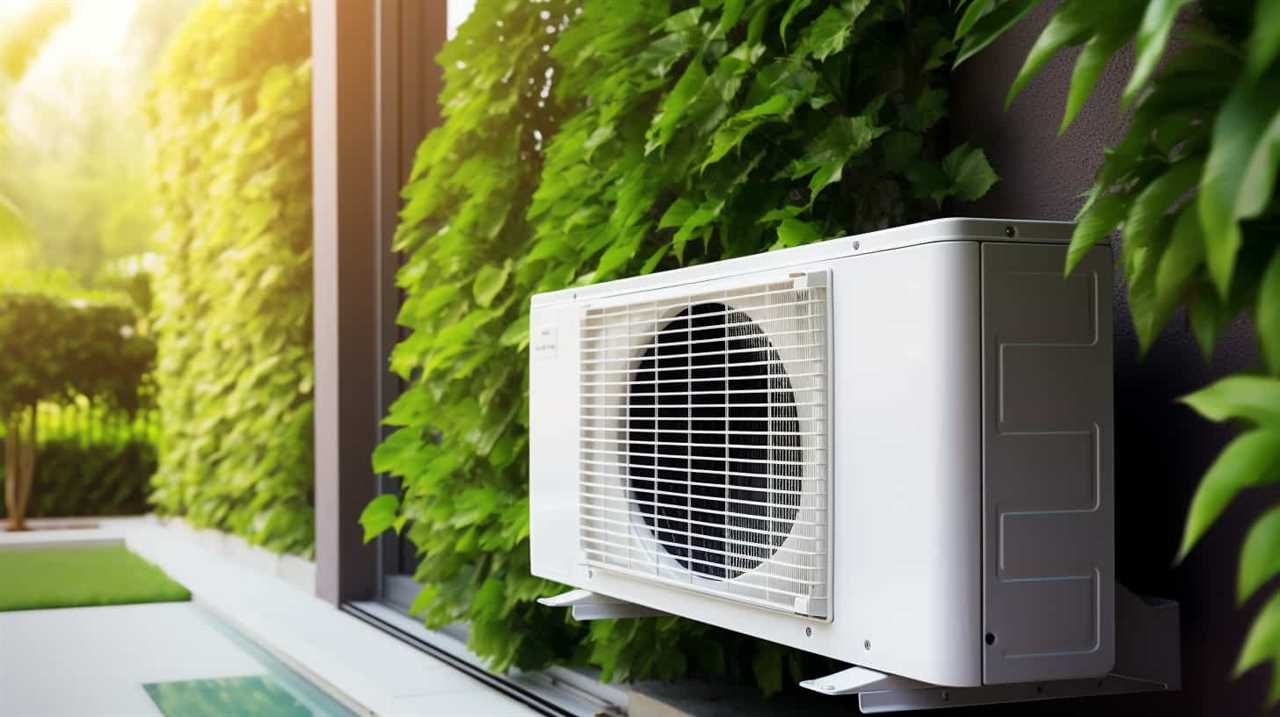
Environmental impact: Heat pumps are more environmentally friendly than traditional heating systems as they use renewable energy sources and produce fewer greenhouse gas emissions. Choosing heat pumps can contribute to a greener and more sustainable future.
Considering these factors, heat pumps offer not only cost savings but also a positive environmental impact, making them a cost-effective choice for heating systems.
Frequently Asked Questions
How Does the Initial Cost of Installing a Heat Pump Compare to a Traditional Heating System?
When comparing the installation cost of a heat pump to a traditional heating system, it’s important to consider the long-term savings potential. We will analyze the data to provide an informative and data-driven answer.
Are There Any Government Incentives or Rebates Available for Homeowners Who Choose to Install a Heat Pump?
Yes, there are government incentives and rebates available for homeowners who choose to install a heat pump. These incentives are aimed at promoting energy efficiency and can help offset the initial cost of installation.
Can a Heat Pump Be Used for Both Heating and Cooling Purposes?
Yes, heat pumps can be used for both heating and cooling purposes in residential settings. They are highly energy-efficient, making them a popular choice among homeowners looking to reduce their energy consumption and save money.
What Is the Lifespan of a Heat Pump Compared to a Traditional Heating System?
When comparing the lifespan of a heat pump to a traditional heating system, it’s important to consider maintenance requirements. Heat pumps typically have a longer lifespan, but regular maintenance is key to ensuring optimal performance and longevity.
Are Heat Pumps Suitable for All Types of Climates, or Are They More Effective in Certain Regions?
Heat pump performance and energy efficiency vary based on climate. They are generally more effective in regions with mild winters and moderate summers. This information can help determine if heat pumps are suitable for all types of climates.
Are Heat Pumps More Energy Efficient Compared to Traditional Systems in Renewable Energy Systems?
When it comes to heat pump efficiency in renewable energy systems, choosing a heat pump can provide significant energy savings compared to traditional systems. Heat pumps utilize a small amount of electricity to transfer heat, making them highly efficient. This renewable energy solution can help reduce carbon emissions and lower energy costs while keeping your home comfortable.
Conclusion
Based on our data-driven analysis, it’s clear that heat pumps outperform traditional heating systems in terms of energy efficiency and electricity usage.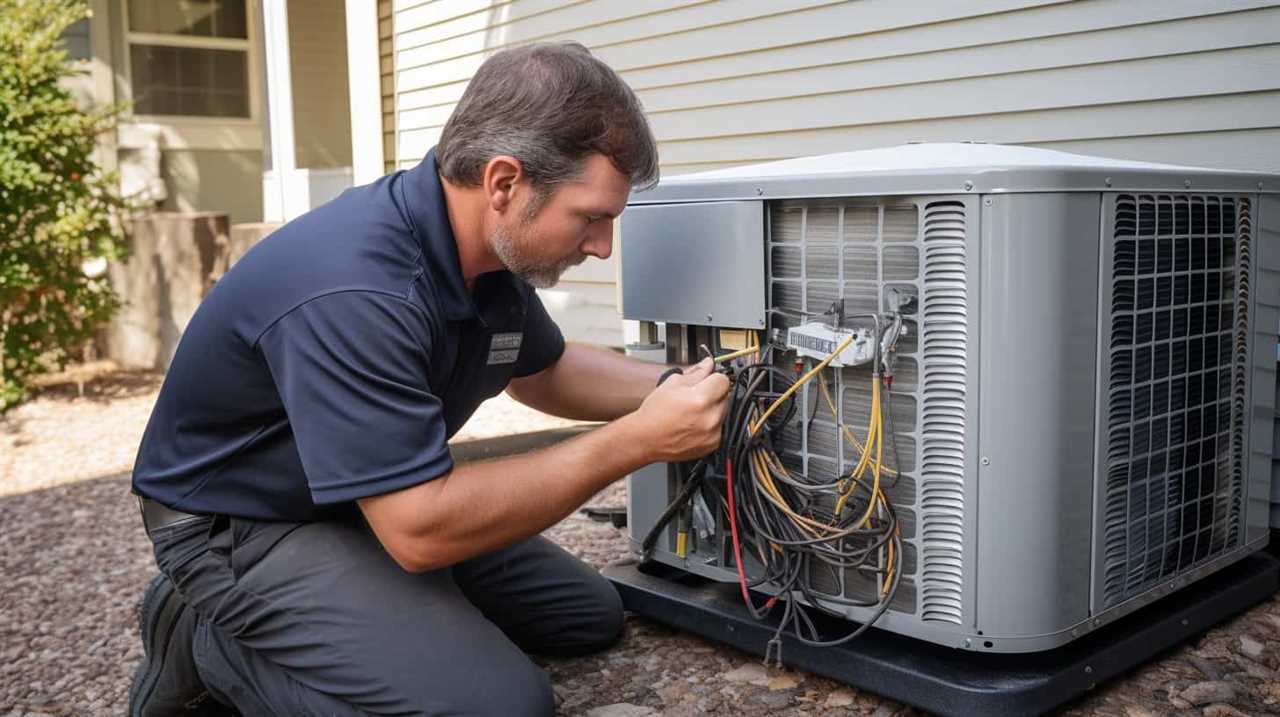
The comparative analysis reveals that heat pumps consume significantly less electricity, resulting in cost savings and reduced environmental impact.
Factors such as insulation, climate, and system maintenance also play a role in energy consumption.
In conclusion, the cost-effectiveness and energy efficiency of heat pumps make them a compelling choice for environmentally conscious individuals.
-

 Residential and Commercial Applications2 weeks ago
Residential and Commercial Applications2 weeks agoBest Amana Heat Pump Reviews
-

 Thermal Energy Transfer2 weeks ago
Thermal Energy Transfer2 weeks agoBreakthroughs in Modern Heat Pump Systems: Thermal Energy Edition
-

 Residential and Commercial Applications2 weeks ago
Residential and Commercial Applications2 weeks agoBest Heat Pump
-

 Geothermal Heat Pumps3 months ago
Geothermal Heat Pumps3 months agoUpgrade Your Comfort with Our Efficient HVAC Systems
-

 Air Conditioning3 months ago
Air Conditioning3 months agoExploring Energy-Efficient Air Conditioning Heat Pumps
-

 Geothermal Heat Pumps3 months ago
Geothermal Heat Pumps3 months agoInnovative Geothermal Heat Pump Manufacturers Revolutionize Energy Efficiency
-

 Thermal Energy Transfer1 month ago
Thermal Energy Transfer1 month agoBoost Your Heat Pump Efficiency: Interactive Guide
-

 Residential and Commercial Applications2 weeks ago
Residential and Commercial Applications2 weeks agoBest Portable Heat Pump Heat & AC










